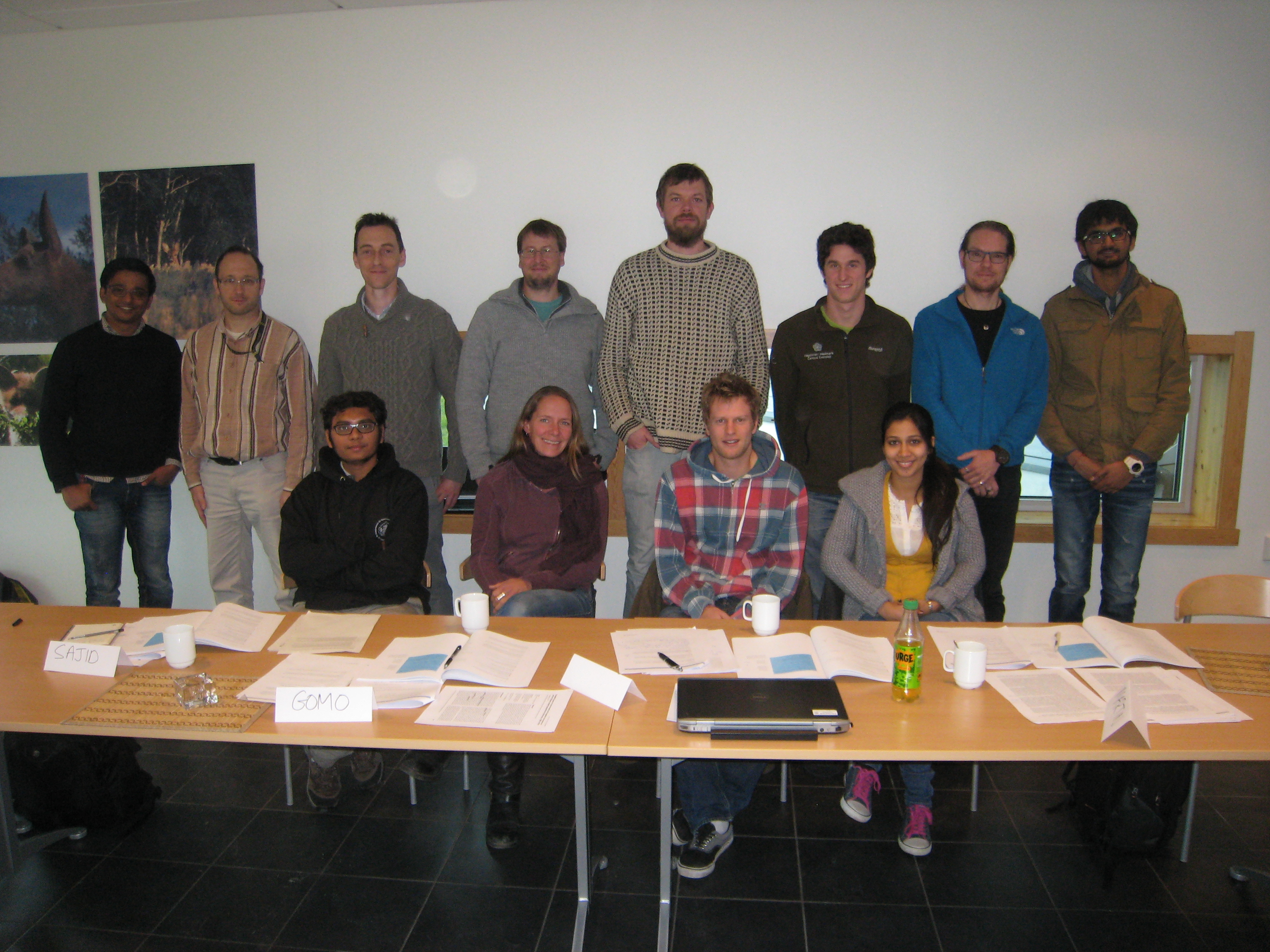This two-day course at Evenstad (Hedmark University College, Norway; 6-7 November 2014) was led by Dr. Brian Cusack (Science Craft, Germany). Ten PhD students from four different IRSAE institutions were gathered with (in my case) high expectations: I hoped for good advice on how to write the papers that I need for my PhD. Some participants had already up to five publications published in some former life, others (myself included) are about to start writing their very first paper (I just have to finish my fieldwork first).
In this interactive workshop we worked a lot in pairs of two students, discussing small questions concerning the topic. Brian Cusack greatly used pieces of our own work as examples in the course. After his initial inquiry for information some weeks before the course started, two more emails with requests followed shortly (and unexpectedly) after each other – yes, also teachers in communication can always improve themselves!
The workshop was very very useful in my opinion. With the use of the provided Reference Book and a set of printed questions/assignments we went through all (or at least: a lot of) important aspects of writing a scientific article: not only its structure and content (what do we actually put in there and what should definitely not be written there) but also how to get started with writing, structuring your thoughts etc. We used some existing papers as examples. These gave us sometimes quite surprising insights. For example, although a lot of people think that being a native English speaker is a clear advantage when writing a paper in scientific English (and in a lot of respects it is), Brian showed some disadvantages as well (with published work from himself, being a native English speaker (well… Irish?!? as nice examples). Use of language was one of the topics that got a lot of attention in this scientific writing course.
Although I expect to be using a lot of time writing my first papers, I am convinced that with the information provided in this course this time will be reduced with at least 50 percent – and the quality will be a lot higher. Although not all of this may be true of course, the belief that this is the case already helps lowering the barrier to start writing my first paper! It turned out during the workshop that many struggle with just starting writing a paper and often have invalid excuses for postponing the actual first start (not me of course). And one of them is ‘I just have to finish my fieldwork first’…
Marcel Schrijvers-Gonlag, Hedmark University College
The workshop was organized for phd students to learn the tips and tricks
for successful scientific writing. I found the workshop extremely useful
for successful completion of PhD and even for my research career
ahead. This is a one time investment and you can pick up the writing
flow forever, if properly utilised. The workshop was well organised, to
the point and highly interactive. The materials provided were of high
quality. I would recommend this workshop to anyone who is beginning
the research career and need a push to get into the scientific writing
business.
We learned how to structure our paper, going into details per session and
also had one to one discussion with the tutor on our own abstract which
was submitted earlier.
Sajid Pareeth, FEM
On the picture:
Standing, from left to right: Sajid Pareeth, Olivier Devineau (IRSAE), Brian Cusack (course instructor), Gjermund Gomo, Torfinn Jahren, Martin Mayer, Marcel Schrijvers-Gonlag, Niranjan Parulekar. Sitting, from left to right: Priyank Sharad Nimje, Marianne Olsen, Cyril Milleret, Gauri Bandekar



